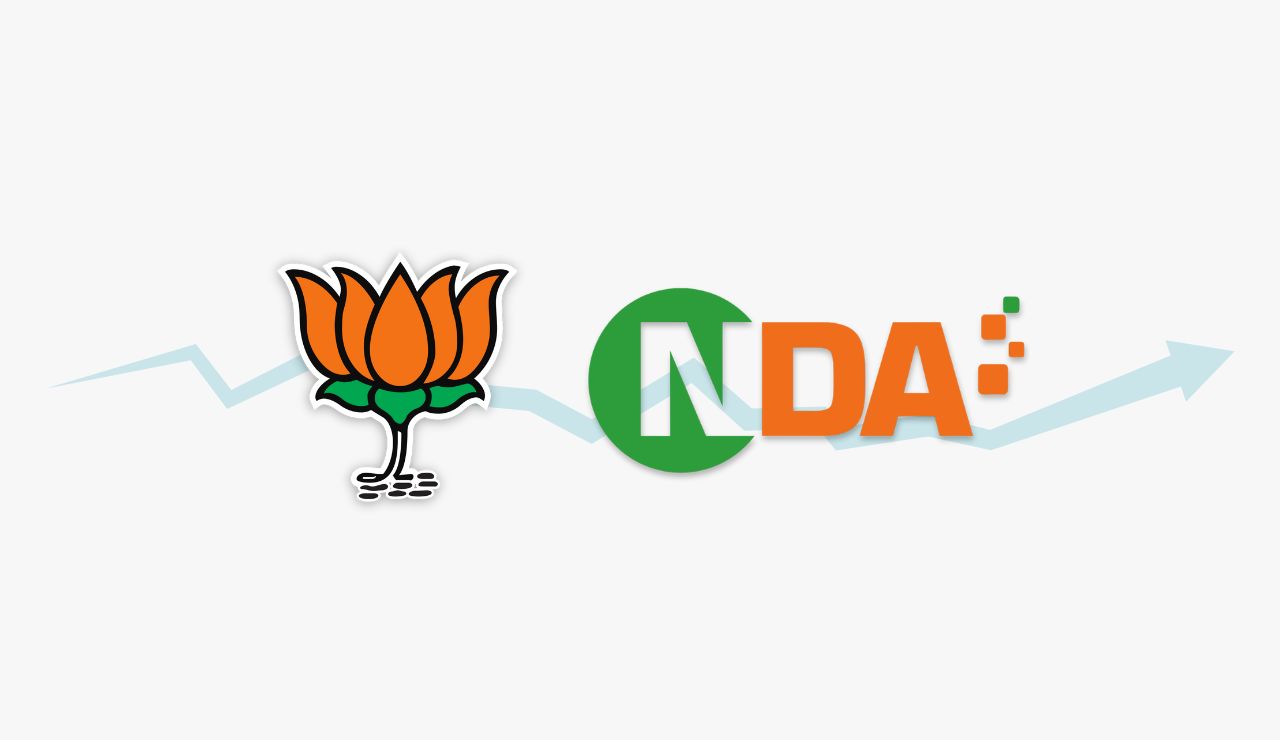As India approaches another electoral season, the question on everyone’s mind is: What will happen if the Bharatiya Janata Party (BJP) and its National Democratic Alliance (NDA) coalition are voted out?
For investors and market watchers, this scenario is not just a political shift but a potential market-altering event.
Understanding how the market might react is crucial for making informed decisions. Here’s an in-depth analysis of the likely market responses to such a significant political change.
Immediate Market Reaction: Volatility and Uncertainty
The immediate aftermath of a BJP/NDA ouster is expected to bring volatility and uncertainty to the markets.
The BJP, under the leadership of Prime Minister Narendra Modi, has been perceived as business-friendly, implementing several pro-market reforms such as the Goods and Services Tax (GST), Insolvency and Bankruptcy Code (IBC), and liberalization of FDI norms.
A sudden change in government could lead to a knee-jerk reaction from investors who fear policy reversals or delays in ongoing reforms. The stock market, known for its sensitivity to political stability, may see a short-term dip as investors recalibrate their portfolios.
- Currency Fluctuations- The Indian Rupee is likely to experience fluctuations in response to political uncertainty. Currency markets react quickly to political developments, and a change in government might lead to concerns about economic stability. If foreign investors pull out their investments in anticipation of policy changes, the Rupee could depreciate. This would impact import-heavy industries and could lead to higher inflation in the short term.
- Long-term Market Outlook: While the initial reaction might be volatile, the long-term market outlook will largely depend on the policies adopted by the new government. If the incoming government demonstrates a commitment to economic reforms, infrastructure development, and maintaining fiscal discipline, the markets could stabilize and even thrive. Investors will be closely watching the new government’s economic agenda, particularly their approach to ongoing projects and regulatory frameworks.
- Sectoral Impacts: Different sectors will be impacted in various ways. For example, the infrastructure and real estate sectors, which have benefited from the current government’s policies, might face uncertainty if new policies are perceived as less favourable. On the other hand, sectors like agriculture and small-scale industries, which have at times felt neglected, could see renewed focus and investment, potentially leading to growth in these areas.
- Foreign Investment: Foreign Direct Investment (FDI) is crucial for India’s growth trajectory. The new government’s stance on FDI will be a significant determinant of market behavior. A government perceived as protectionist could deter foreign investment, while a government that encourages FDI could bolster market confidence. Global investors are highly sensitive to political and regulatory environments, and their perception will be a key factor in the market’s long-term performance.
- Domestic Investor Sentiment- Domestic investor sentiment plays a crucial role in market stability. Indian retail investors have become more influential in recent years, and their confidence in the new government will be pivotal. If the new administration can quickly establish credibility and reassure domestic investors of their commitment to growth and stability, market disruption can be minimized.
- Historical Perspective and Global Comparisons- Looking at historical data, markets have often shown resilience in the face of political change. For instance, the market’s initial reaction to the 2014 BJP victory was positive but sustained growth required consistent policy actions. Similarly, global markets have shown that while elections can cause short-term volatility, they generally recover as long as economic fundamentals remain strong.
Conclusion: Navigating the Change
In summary, while governments change over time, the market has historically provided strong returns regardless of which party is in power.
Hence, the market reaction to a potential BJP/NDA ouster will be characterized by initial volatility followed by a period of adjustment. Investors should brace for short-term turbulence but keep an eye on the long-term policy directions of the new government.
Diversification and a focus on fundamentally strong sectors can help mitigate risks. Ultimately, markets thrive on certainty, and clear, investor-friendly policies from the new administration will be key to restoring market confidence and stability.
The political landscape may shift, but informed and strategic investment decisions can help navigate the uncertainties ahead.
Also Read – How The 2024 Election Results In India Impact The Stock Market?











